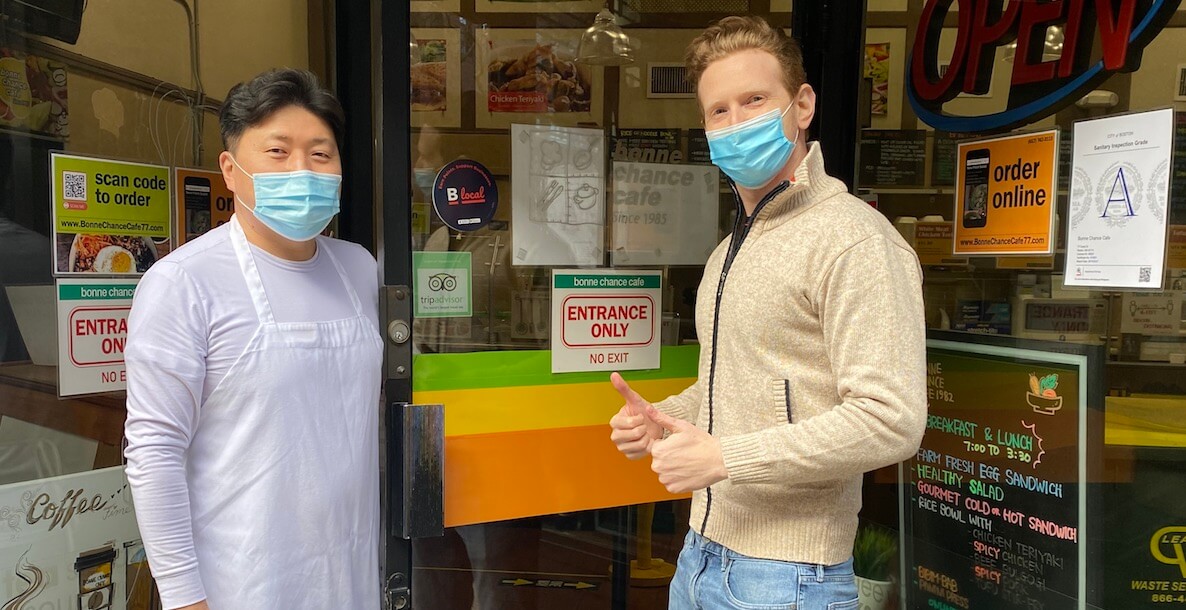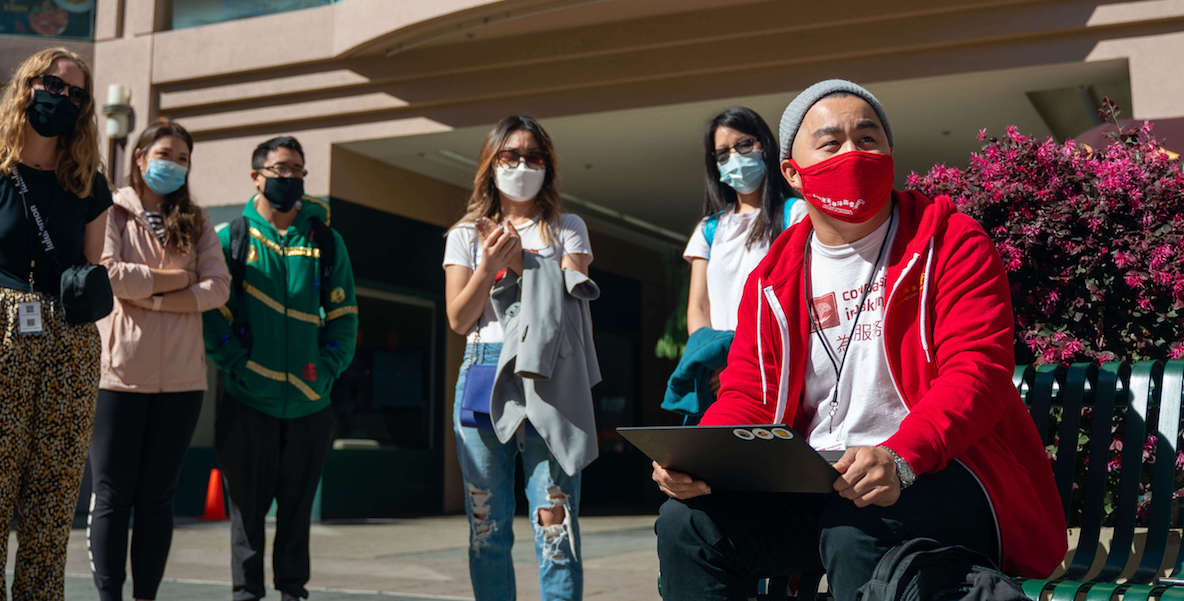In the early days of the pandemic in Philadelphia, city officials scrambled to grapple with a tragic effect of Covid: That poor Black and Brown residents were disproportionately getting severely ill and dying from the virus. It was, as cities around the country came to recognize, the effect of decades of limited access to good health care, lower air quality and the effects of poverty.
Orange County, California, though, was better prepared than most to identify and provide services for vulnerable populations during Covid. That’s because the county was among a few American communities that had already adopted the use of an Equity Map, a data platform that spotlights social and health disparities across multiple dimensions.
Working with the Social Progress Imperative, a global nonprofit based in Washington, D.C., that looks at a Social Progress Index (SPI) to measure well-being in a comprehensive way, OC was able to determine the most underserved populations with the greatest Covid risks, and use that info for an immediately pressing need when it came up early this year: vaccine distribution.
“We have all these tools and metrics to help drive national economic policy but why is there no holistic measure of the health of a society to help us really build some harmony in setting economic and social policy?” says Edwards.
The county includes high- and low-income areas, and communities with large Asian and Latinx majorities. The data was broken down to 580 census tracts and displayed Social Progress Index scores, health-related indicators from the CDC, OC Health Care Agency Covid case and death indicators, and demographic data for each tract. In cooperation with the public health agency, the county and its nonprofit partner engaged in a customized outreach and even deployed mobile units in buses.
“We heard that certain communities were most vulnerable to Covid, but that was very general. The localized data allowed us to really target our vaccine efforts,” says Katie Kalvoda, the president of the nonprofit Advance OC, which works with the county to use innovation and strategic philanthropy to address inequities. “Nobody had dealt with something like Covid on this scale, and a lot of people were kind of operating in the dark. The data allowed them to operate with certainty.”
How the Social Progress Index works
Social Progress Imperative uses its Social Progress Index to measure a community’s well being beyond the usual lens of economics. Do people have a safe place to live? Do they have access to clean water, basic medicine, education? It looks at non-economic opportunities around rights, inclusion and tolerance. And it dives deep into details around each of the issues.
“Safety can have multiple dimensions, right?” Justin Edwards, SPI’s U.S. director says. “We’re looking at violent crime, murder rates, property crime, but also pedestrian-related safety, for example. Then we use factor analysis to understand how these indicators interact with each other.”
The USA is one of the richest nations globally; yet, it only places 24 on the SPI’s global index, not least because of inequality issues and troubling health care indicators.
The result is a detailed analysis of a neighborhood’s well-being, and by extension a city’s well-being, and allows local leaders to track how well or how poorly communities are being served. “Progress is not just determined by how much money a region has,” Kalvada notes.
The SPI started out as a global initiative and quickly began to gather highly detailed data for regional and local levels. “For instance, it was used by local government in 776 municipalities across the Amazon region of Brazil to look at supply chain risks,” Edwards says. “What we’re really trying to do is equip leaders in all sectors with a broader perspective on what it means to have success in your community.”
The USA is one of the richest nations globally; yet, it only places 24 on the SPI’s global index, not least because of inequality issues and troubling health care indicators. Scandinavian countries such as Finland, Norway and Denmark have reliably placed on top of the index.
Looking at Philadelphia on the SPI
“The idea for the SPI was born out of the 2008 global financial crisis,” Edwards explains. “The question came up: We have all these tools and metrics to help drive national economic policy but why is there no holistic measure of the health of a society to help us really build some harmony in setting economic and social policy?”
The SPI has collected social and environmental data of the 500 largest US cities, including Philadelphia, down to 28,000 census tracts. Other U.S. communities that have consulted the SPI include San Mateo County in California, Miami-Dade County in Florida and the city of Jackson, Mississippi.
Edwards has been speaking with advocates in Philly for years, including members of City Council, Resolve Philly, and Anne Gemmell, the founder of the Future Works Alliance and a columnist for The Philadelphia Citizen.
Via Zoom screen share, Edwards pulls up the preliminary findings for the 500 US cities index the nonprofit will publish next year. One finding that stands out is the low preschool enrollment rate in Philadelphia. Another glaring result is low access to health care in some areas.
“The employment rate or the GDP are all fine measures, but they don’t give us the information to really know about the job or the quality of life workers have in certain occupations or industries,” says Gemmell. “We needed to reexamine what we measure and look at adopting measurements that give us more nuanced information.”
“Inside Philly, there are communities that are doing a lot better than others. There are fragilities that maybe we’ve glossed over for too long,” Edwards says. “Looking at the health outcomes, we can prioritize the right solutions. As a government leader of a community, I could say: We’re going to set an economic target, let’s say raise our gross domestic product by three points in the next five years. But we also want to see our SPI raised by 10. We can set targets and manage assets and resources to achieve that social progress target as well.”
The SPI is part of the growing field of “happiness economics.” Bhutan, for instance, has used its own National Happiness Index for decades; the Organisation for Economic Co-operation and Development (OECD) has created the OECD Better Life Index; the United Nations has published a World Happiness Report based on various quality-of-life factors; and the Happy Planet Index also just published its global report, weighing ecological factors more prominently than the SPI. In a way, no single index will give you the full picture, but each can point to important factors.
The SPI was founded with partners such as the Skoll Foundaton, Deloitte and Cisco. The index is based on the writings of Harvard economist Amartya Sen, the late Nobel Prize winner Douglass North, and Nobel Prize winner and former chief economist of the World Bank, Joseph Stiglitz. The European Union has partnered with the SPI and is using it to help inform policy.
Excluding economics is the point
Of course, statistics are not entirely objective. The results depend on which data are gathered, in which way, and how the data is weighed. The SPI has been criticized for basing many of its criteria on Western values, such as religious tolerance or gender equality. Critics have also made the case that deliberately excluding economics makes the SPI less valuable.
But to Edwards, excluding economics is the point. “It’s one of the most powerful things the SPI does, so it doesn’t double-count the impact of finances on the direction of a life,” he says. “By doing that, we can actually analyze social progress against income trends. You can find very wealthy and very low-income communities that have the same SPI, or communities that have triple the median income but the same SPI. It really emphasizes the choices we make and what we do with the available resources.”
The SPI presents itself as a non-political organization, though, as Edwards acknowledges, setting priorities for city spending is inevitably intertwined with political agendas. “Especially when it comes to working with a government partner, the process can be long, very political, it can get very nasty, and then somehow we’re mixed into that,” he says. “Every single data point is hot button. We’re measuring some things that are at the core of where our nation is struggling in many ways.” As an example, he points to the US data in the global index that shows “record-breaking numbers of hate crimes this year.”
Edwards is convinced that “the most important thing is to find meaningful partners who are going to help articulate the value from their side, as a resident or as a council member, as somebody who’s committed to making an impact locally.”
With SPI we can cut through a lot of the barriers to getting towards a solution, and actually equip the people who develop localized solutions to be part of that process,” says Gemmell.
Gemmell, former director of special initiatives in the City’s Commerce Department, says she was motivated to embrace the SPI after a consultation process with hundreds of experts from the public and private sector she led in 2019 for the city to assess Greater Philadelphia’s ability to prepare for the age of automation and other challenges around the future of work.
“Out of these conversations, it became clear that we needed to measure things that matter that we’re not currently measuring in order to keep a finger on the pulse to track changes or improvements,” Gemmell says. “The employment rate or the GDP are all fine measures, but they don’t give us the information to really know about the job or the quality of life workers have in certain occupations or industries. We needed to reexamine what we measure and look at adopting measurements that give us more nuanced information.”
RELATED: What is the future of work? (FAQ)
Gemmell researched various indexes and landed on the SPI as a way to also compare how Philadelphia stacks up against other metropolitan areas. She sees a two-pronged use for the SPI in Philly: “The first one is a meta use. It can empower citizens to look at the data about their communities and their census track, and say, this is what we care about, and it’s evident in the data. It can empower people to advocate for their needs.”
The second advantage she sees is in preparing Philadelphia for long-term goals. When she was let go from her city job due to financial strains during the pandemic, Gemmell says she was told the city didn’t have the resources to focus on the future. “Governments everywhere at all levels are grappling with incentives to focus on the short-term crisis rather than leaning into long-term problem solving,” she says. Conversely, having an SPI lens on city planning would embed long-term thinking into every decision.
Take climate change, for example. “The solutions need to start now, and we may not see the results of the work until beyond the current political cycle,” Gemmell says. “On a micro level, this inhibits people like me and other future-minded innovators to lift these issues to the top.”
In conversations with city officials, Gemmell says she has found several who are interested in adopting the SPI, because of its reliance on data. “There’s a level of accountability and transparency built into big data,” she notes. “You get the realistic answer, not the sugarcoating.”
In Orange County, the experience of using SPI to help deploy Covid relief and vaccines proved to Kalvoda the efficacy of the program. Now, she says, they’re moving on to other issues.
”For example, communities that live near the interstate, is there a pollution issue?” she says. “We also want to use it to identify who’s at risk for food insecurity and how we can match these populations with resources. [With SPI] we can cut through a lot of the barriers to getting towards a solution, and actually equip the people who develop localized solutions to be part of that process.”
![]()
MORE ON FINDING SOLUTIONS THROUGH TECH
Header photo by A n v e s h / Unsplash









